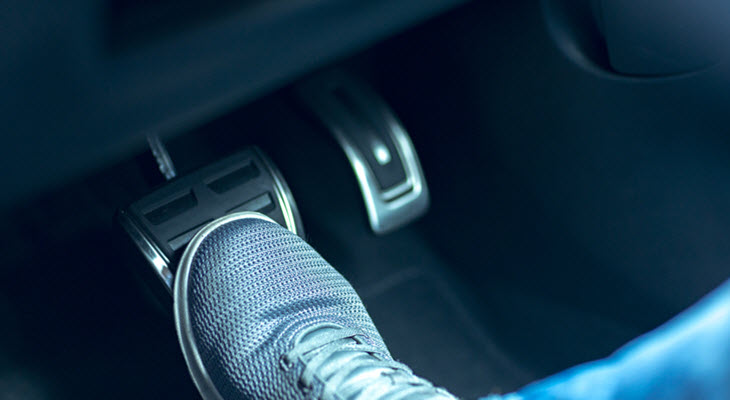


Jaguar models are high-performance luxury vehicles with innovative technology and a sleek, stylish design. If you are the owner of a Jaguar or are looking into purchasing one, you are probably familiar with their excellent speed capabilities as well.
As a Jaguar owner, you want to ensure that your vehicle is in top condition for its best performance and its ability to keep you safe, so it is important to know that one of the most common problems faced by Jaguar models is ABS accumulator failure. This can have a serious effect on your vehicle’s braking system, and can be even more dangerous when driving your vehicle at high speeds.
The ABS accumulator is part of your vehicle’s ABS or Anti-lock Braking System. This anti-lock braking mechanism prevents your vehicle’s wheels from locking up when braking hard. The accumulator plays an important role in this system by storing the pressure necessary to brake. It holds both hydraulic fluid and nitrogen gas, separated by a rubber diaphragm. This allows the nitrogen gas to create and apply enough pressure to the diaphragm that it depresses into the space of the hydraulic fluid. This increases the pressure of the hydraulic fluid as necessary when braking.
If your Jaguar’s ABS accumulator fails, it needs to be serviced by an experienced automotive technician as soon as possible to prevent further damage and to keep you safe.
The ABS accumulator plays a vital role in your vehicle’s braking system, so when it malfunctions, your vehicle’s brakes will be significantly impacted. The following are some of the signs of accumulator failure that you should watch for:
A faulty diaphragm is the most common cause of ABS accumulator. The diaphragm is a thick rubber seal between the hydraulic fluid and nitrogen, and it helps to build and contain the pressure within the accumulator. Over time, the rubber can become worn, making it difficult to store pressure in the accumulator. The diaphragm could also break altogether, allowing the hydraulic pressure to escape from the accumulator and also allowing outside fluids to leak into the accumulator. Extreme heat, especially due to your vehicle overheating, could also cause the rubber diaphragm to wear down or warp.
Low pressure of nitrogen can also be a factor. The nitrogen is compressed in the accumulator to help maintain the pressure of the hydraulic fluid. If the nitrogen loses pressure, then the hydraulic fluid will, too. Sometimes, the nitrogen pressure can drop in response to temperature changes, such as the onset of cold weather.
As the owner of a Jaguar, you want to make sure your vehicle is serviced by a certified expert mechanic familiar with your vehicle’s brand. Additionally, the ABS accumulator is an exceptionally important part of your vehicle, and should be given the most expert care and attention. So if you own a Jaguar and are experiencing brake issues in Garland, Rockwall, Sachse, Wylie, or Rowlett, TX, bring your vehicle to Rowlett Motorwerks. Our ASE-certified technicians are trained experts and utilize the latest factory-grade tools & equipment, allowing them to provide your vehicle with the best quality service possible.
To guarantee you are receiving only the most excellent of automotive service, we provide you with a 3-year/36,000-mile warranty on all services and repairs done by our shop. Schedule an appointment with us today, and we will ensure your Jaguar is operating safely and performing in top condition once again.
